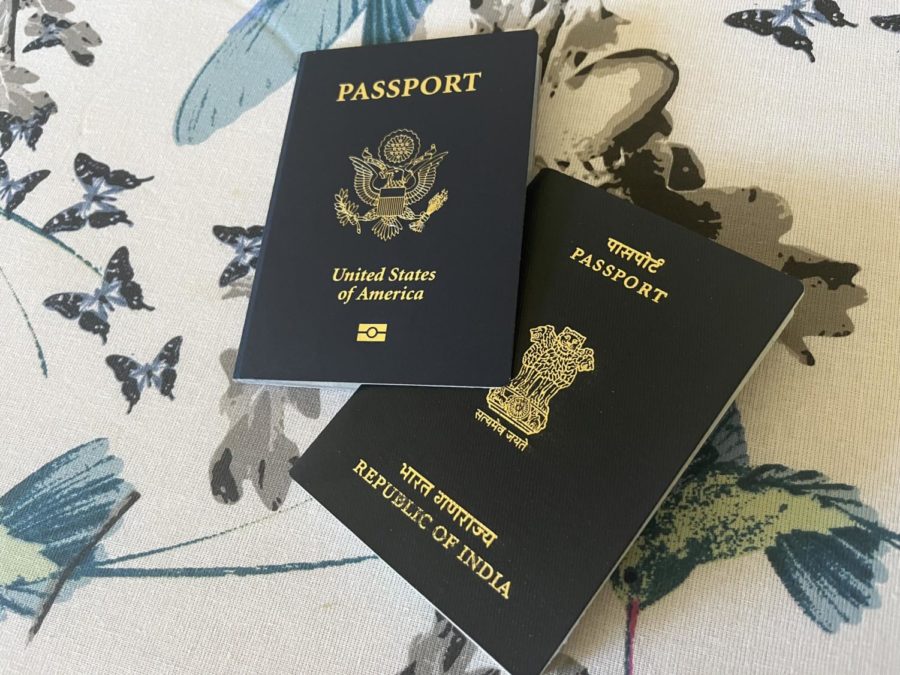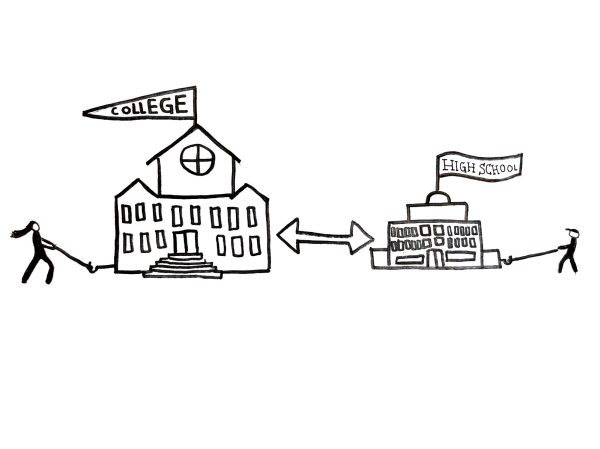Shackled: Skill-Based Immigration is an Unfair Process
When immigrants study hard to come here for a better life on a skill-based visa that states they can do the given job better than a citizen, they never imagine how some of them may not be able to go back home for the next 20 years.
Forty-seven million people in the United States are foreign-born immigrants. Almost a million and a half immigrants are in the country due to their hard work and a skill-based visa. That’s 1.4 million people who earned their spot in this country by exhibiting skills that deem them to be a more valuable asset than the average citizen, and are sharing those skills to help advance America in science, technology, business, education, arts, or athletics.
Immigrants leave their families, their friends, and their lives behind when they decide to come to America for a better life, but sadly the “better” part takes time. While here on a visa, workers are confined to one job, and if they were to lose their job or resign, they would be sent back to their country of origin. If they choose to visit their loved ones in their country, they could get stuck for up to five months due to visa processing. Many immigrants in the STEM field have jobs that require them to be at work 5-6 days a week, therefore even if they had to go back for an emergency, they would most likely lose their job and their visa if they got stuck in their country. This is a challenge, especially for immigrants with American children who depend on their parents for health insurance and might be split from their parents should they lose their visa.
The Green Card Backing Coalition Group on Facebook is a group with 13,000 members who are all stuck in a decade-long backlog, and many of them have shared stories about the sad reality of being on a visa with no end in sight causes. Countless members have lost their parents, siblings, grandparents, and friends, but haven’t been able to go back in order to keep their jobs. Many workers in the STEM field have lost their lab jobs because of a lack of funding and have been kicked out of the country. They are forced to start over with their American-born children in their home country, despite the years they’ve put in for this country and the assets they have. People haven’t seen their families for over 10 years as they wait in line for their green cards. They are chained to their position here until the fateful year comes when it is their time to get a green card. Even on that day, the person should not have traffic violations leading up to date (that’s 20 years of no traffic violations at all), and their fate lies at the hands of a single immigration officer who swears they aren’t biased. And while the line is decades-long for countries like India, China, and the Philippines, it is increasingly more accessible for European countries to get their green card, even though a non-merit-based visa. The length of the line depends solely on your country of origin.
This process is known as the per-country cap, which forces immigrants to wait decades for green cards simply because of their country of origin. It is the reason for the long immigration backlog in the country. It is the reason behind the retrogression of the process, which means you are supposed to get your green card about 11-12 years after you file for it (an already lengthy amount of time), but the process retrogresses, causing the delay to be an additional 9-10 years.
Per-country cap restricts hard-working immigrants’ ability to work, travel, and contribute and creates significant family challenges. To combat this issue, support initiatives like Equal Access to Green cards for Legal Employment (EAGLE Act) – #HR3648, introduced by our own Senator John Hickenlooper, a bill that will benefit the U.S. economy by allowing American employers to focus on hiring immigrants based on their merit, not their birthplace. Employees with higher distinction should be given their green cards simultaneously as people of equal talents from other countries with a smaller backlog.
Despite all they do for a country that isn’t theirs, however, this country rarely rewards them with what every immigrant values most: a green card. A green card is valuable because it grants the freedom to work any job, the freedom to travel whenever and wherever, and most importantly, it gives the holder permanent residency in the US. In theory, the process should be easy, but the wait for a green card can take over 20 years. Immigrants in the skilled labor class are forced to wait until they get a green card to travel back to their homes. Support skill-based immigration, support the freedom of immigrants who are equal members of our society, and support immigrant children who work hard to make up for their parents’ sacrifices.

Saisree is a senior who enjoys interviewing and featuring people at any chance. Since the age of 10, when she wrote an article about Will Smith using a discussion that had never happened, she knew she eventually wanted to interview people. Apart from Newspaper, Saisree enjoys taking contesting courses that she prays she will do well in just for a challenge. She is particularly interested in biotechnology and how it will either benefit or end the human race. She is an artistic person, very much in tune with her culture, and does Indian classical dance, violin, and vocals. To power the force Saisree attempts to be, she relies solely on purple grapes because they are higher in antioxidants and protect...






